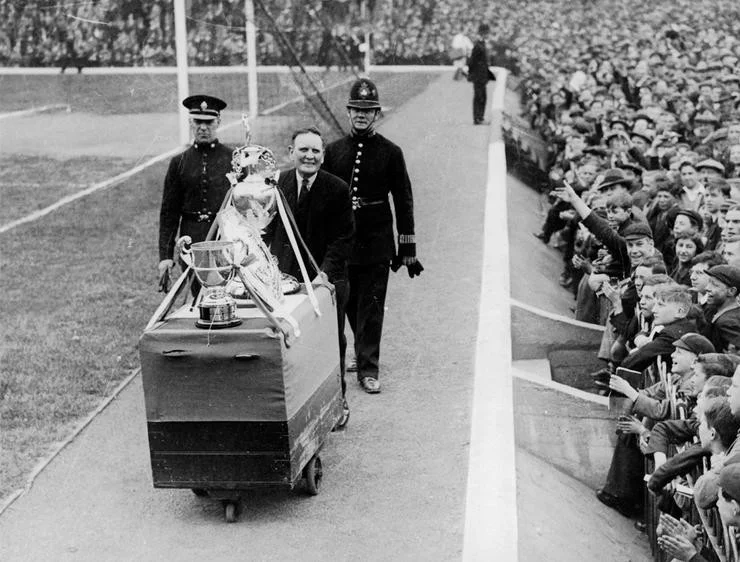Don Howe: The tactical thinker who helped shape half a century of football
From the 1950s to the 1990s he helped shape some of England’s finest hours, as well as serving West Brom and Arsenal with great distinction…
Few can have had so much influence in English football for so long and yet be as under-heralded as Don Howe. Throughout the second half of the 20th Century he was one of the most respected thinkers and coaches in the country. Although a relative paucity of top-level management generally kept him out of the limelight, his was a voice trusted by many in the game, from England’s 1958 World Cup campaign to Euro 96 and beyond: Roy Hodgson was a close friend.
Although born (in October 1935) in Wolverhampton, Howe made his name during a 14-year spell with West Brom, joining them at 15 and making 379 appearances for the Baggies; in 2004 he was voted into a 16-man squad celebrating Albion’s 125th anniversary. The right-back also won 23 England caps; he was an ever-present during the Three Lions’ campaign at Sweden 58, which including blanking eventual champions Brazil in the tournament’s first-ever goalless draw.
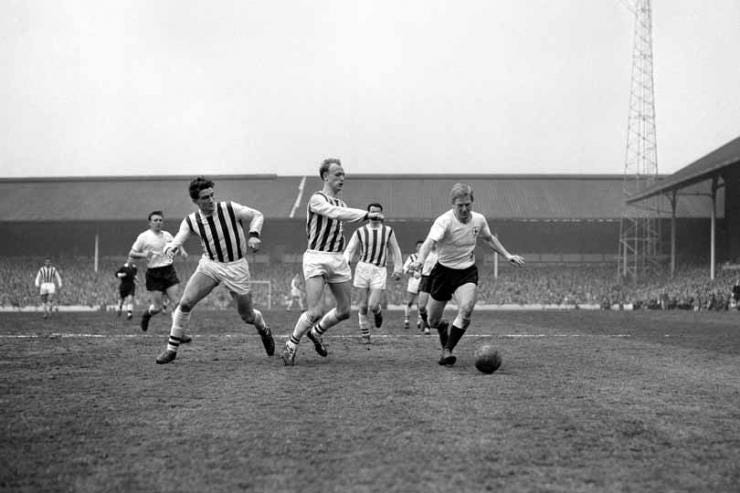
On Albion duty in 1962, his twelfth year at the club
Gunning on
In 1964 he moved to Arsenal and was swiftly made captain, but in March 1966 he broke his leg against Blackpool and never returned to the first team. Instead, he became Bertie Mee’s reserve-team coach, before replacing Dave Sexton as Mee’s first-team coach in 1968. The deep-thinking tactical sidekick to Mee’s avuncular leader, Howe helped the Gunners to the Double in 1971, before leaving to manage his beloved West Brom.
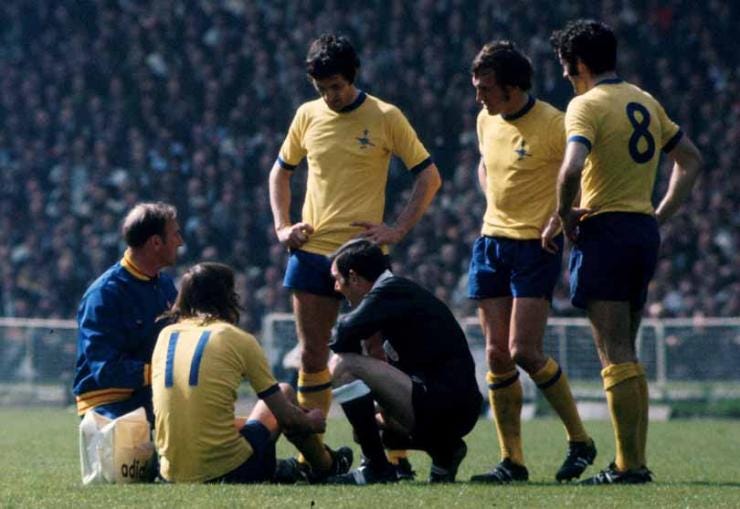
Taking the chance to have a word with Charlie George at the 1971 Cup Final
In truth, Howe was never really a success as a №1. Albion were relegated in 1973, and after a brief spell coaching at Leeds, Howe took charge at Galatasaray in 1975. By 1977 he was back at Highbury as head coach to Terry Neill; when Neill was sacked in December 1983 Howe took over, initially as caretaker.
However, a promising crop of youngsters couldn’t help him bring success and he resigned in spring 1986 amid rumours the Gunners were chasing Barcelona coach Terry Venables. They would later appoint George Graham, who moulded Howe’s youth graduates into two-time league champions.
Recruited as Bobby Gould’s assistant at Wimbledon in 1987, he was widely credited with installing the tactical nous that helped the Dons stun Liverpool in the 1988 FA Cup Final. A spell in charge of QPR was followed by keeping Coventry in the top flight in 1992, following Terry Butcher’s sacking, and making sure the Sky Blues climbed aboard the Premier League gravy-train.
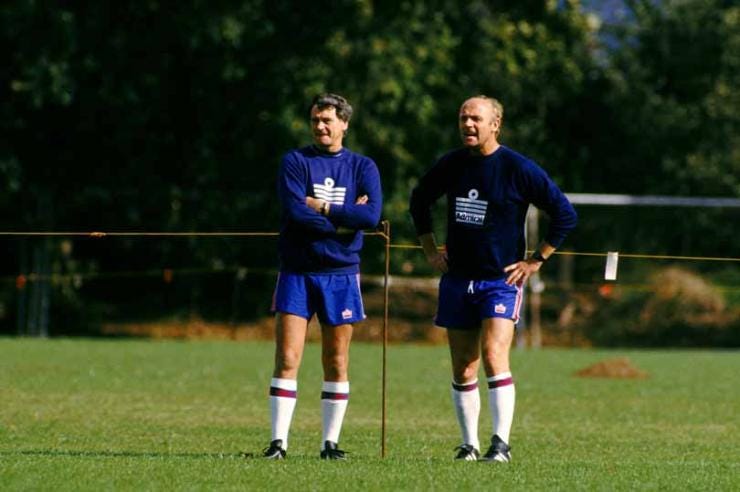
Watching England train with Bobby Robson, 1983
Lions share
In addition to his club roles, Howe spent several years with England. Ron Greenwood appointed him to the coaching staff in 1981, and Bobby Robson happily kept him on for his sage tactical advice. With Howe as part of the backroom brains trust, England reached the Mexico 86 quarter-finals and the Italia 90 semi-finals — and when Terry Venables’ side reached the same stage at Euro 96, there was Howe on the England bench.
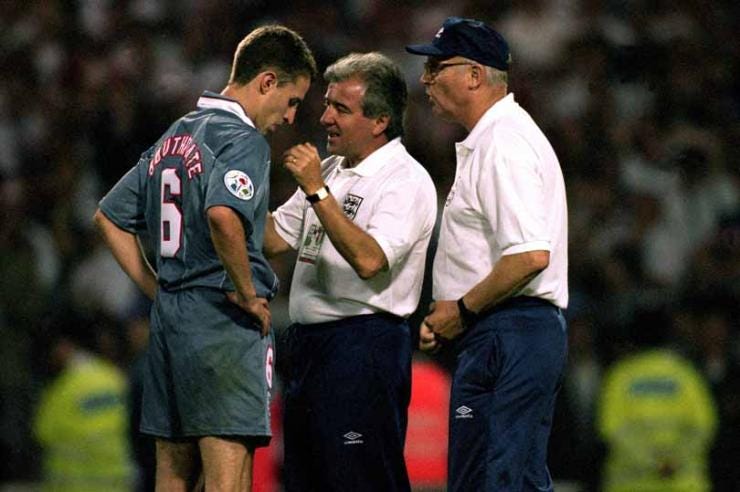
Consoling Gareth Southgate at Euro 96
Although not a proponent of dour football, former defender Howe never forgot the value of a clean sheet — and was all the more respected for it. Writing in his newspaper column last year about the poor quality of modern defending, Gary Neville recalled Howe’s attention to detail, cunning training routines and high expectations: “Terry Venables was telling us how well we youngsters had done when Don cut him off and said: ‘You may be happy, but I’m not. We conceded a goal from a set-piece and that’s ridiculous. We worked on that in training.’”
By that time Howe was in his sixties and off the frontline of club football, but it’s a sign of the esteem in which he was held that he was once more invited back to Arsenal to work as a youth-team coach — a role from which he finally retired in 2003. Approaching 70 years of age, he had given more than half a century to the game he loved, and which quietly respected him.
Donald Howe, 12 October 1935–23 December 2015
Originally published by FourFourTwo on December 23, 2015.



